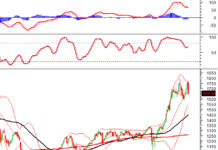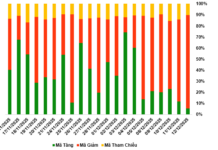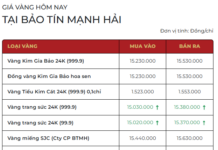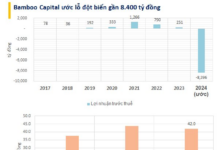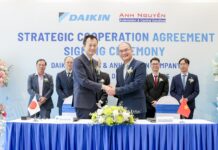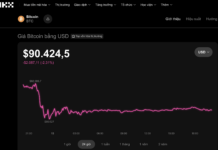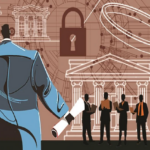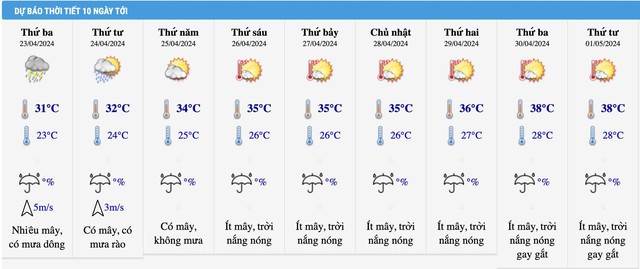
Temperatures are expected to reach 38 degrees Celsius during the upcoming 30/4 – 1/5 holiday. Source: National Center for Hydro-Meteorological Forecasting. Screenshot
With the long holiday coming up from 30/4 – 1/5, weather forecasts predict temperatures could reach as high as 40 degrees Celsius during these days. The South is currently experiencing a peak in hot weather, while the North is about to enter its first prolonged spell of extreme heat. For many, “air conditioning is the only thing that’s keeping us alive; everything else is secondary”. However, this is also the time when electricity bills skyrocket, rising in proportion to the scorching heat.
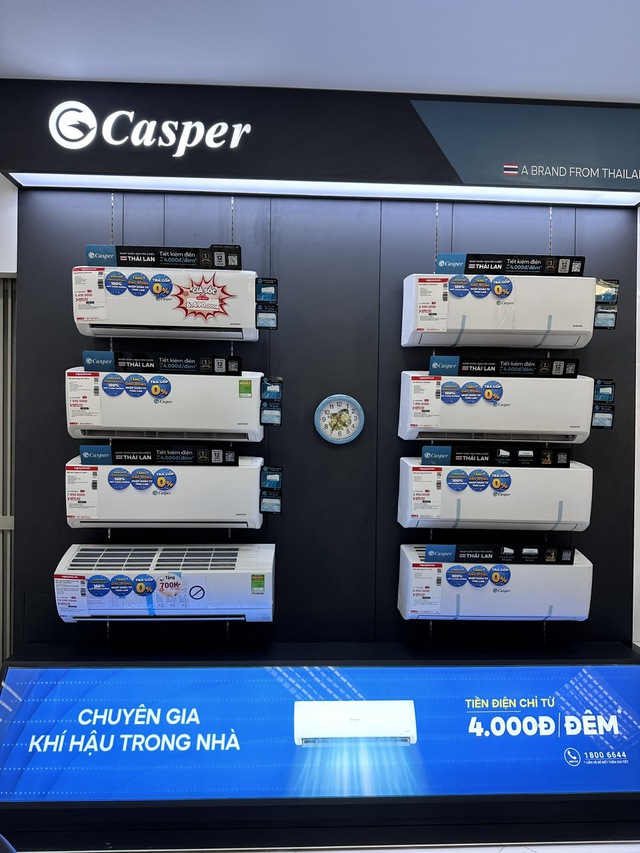
According to experts, Inverter air conditioners save 40% more electricity than mechanical air conditioners. Photo: Tuan Nguyen
In reality, not all air conditioners consume the same amount of electricity. Inverter air conditioners are now widely available on the market and are said to save around 40% more electricity than traditional mechanical air conditioners.
How do Inverter air conditioners save electricity compared to mechanical air conditioners?
A group of Saudi Arabian engineers conducted a specific experiment to determine how much more energy efficient Inverter air conditioners are compared to mechanical air conditioners in 2019. The group used two air conditioners—one Inverter and one regular air conditioner—with the same cooling capacity of 18,000 BTU. These two air conditioners were placed in two identical rooms with the same number of people and the same area of 14.7 m2.
The team of engineers ran the air conditioners continuously for 108 days, measuring the amount of electricity consumed during that period.
The results showed that the average daily electricity consumption of the mechanical air conditioner was 20.8 kWh/day, while the Inverter air conditioner consumed 11.6 kWh/day, saving 9.2 kWh/day (45%).
Another point that these engineers noted is that the energy savings of an Inverter air conditioner will increase compared to a mechanical air conditioner as the outside temperature rises. For example, when the outside temperature reached 35 degrees Celsius, the room temperature of the air-conditioned rooms was set to 24 degrees Celsius, the mechanical air conditioner consumed nearly 25 kWh/day, while the Inverter air conditioner remained at just over 11 kWh/day, saving over 50% of the electricity consumed.
Based on the average electricity price of VND2,500/kWh, Inverter air conditioners could save users around VND23,000 per day, equivalent to VND690,000/month—this is, of course, assuming continuous operation. If we assume that the average user runs the air conditioner for about 12 hours per day and uses it for around six months of the year, the savings for an Inverter air conditioner compared to a mechanical air conditioner with the same capacity (18,000 BTU) could be over VND2 million/year.
Of course, this is just a rough estimate, but users can use it as a basis to gauge the savings of an Inverter air conditioner compared to a conventional mechanical air conditioner. Apart from saving electricity, Inverter air conditioners also offer several other advantages: they can operate stably even when the electrical supply to the system is insufficient (brownouts), cool down faster, and are less noisy and more durable.
As a result, Inverter air conditioners are becoming increasingly popular with domestic consumers, especially as the prices of these air conditioner models become more competitive.
Inverter air conditioners designed for families with elderly or young children, featuring soft, non-draughty air
Recently, a prominent air conditioner brand in Vietnam, Casper, announced its focus on replacing mechanical air conditioners with Inverter air conditioners, with a range of new products at extremely attractive prices.
For instance, this brand has just launched a line of high-end Inverter air conditioners called EcoPrime, with a retail price starting from VND8.5 million. The EcoPrime Inverter QC-09IS36 9,500 BTU model features a range of advanced technologies, such as SilkAir soft, non-draughty air, BabyCare mode, iSaving automatic power-saving mode, and iFeel intelligent heat-sensing automatic temperature adjustment, which provides optimal cooling and energy efficiency.
This air conditioner model is specifically designed to meet the needs of high-end segments but at a reasonable price, focusing on practical features that enhance air quality and sleep for multi-generational families, especially those with elderly or young children.
With its SilkAir soft, non-draughty air feature, the EcoPrime has thousands of ultra-small Micropores Air holes on its air vents. Practical experience shows that these air vents evenly diffuse cool air to prevent family members sitting under the air conditioner from feeling cold. This air conditioner line is ideal for areas with hot and sunny weather, providing cool and refreshing air that gently and evenly distributes throughout the room, while minimizing noise when the unit is operating year-round.
Furthermore, this is one of the few air conditioner lines with a special mode for infants and young children called BabyCare. With just one touch of a button on the remote control, this function automatically activates the unit to operate more quietly through the air vents, at the lowest fan speed, and maintains a suitable temperature for young children, around 26 degrees Celsius.
As such, at this point in time, users can now purchase Inverter air conditioner models for a price only marginally higher than mechanical air conditioners, while saving around 40% on electricity consumption, with numerous additional features, making them ideal for multi-generational families.
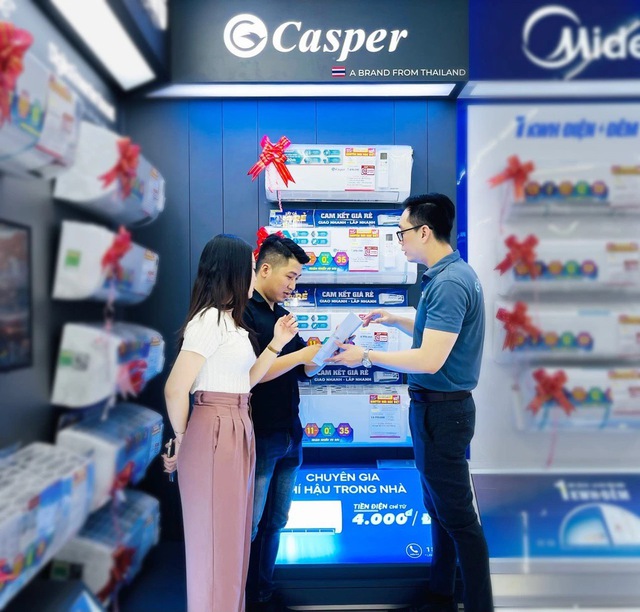
Consumers can now buy Inverter air conditioners for a price only VND300,000 – 400,000 higher than mechanical air conditioners, but they will save much more in the long run. Photo: Tuan Nguyen.
“Currently on the market, the purchase price of Inverter air conditioner models is VND300,000 – 400,000 higher than mechanical air conditioners. On average, with eight hours of mechanical air conditioner use per day, the electricity bill would be VND300,000 per month. In contrast, Inverter air conditioners would save VND180,000 for the same operating time and capacity, meaning a saving of VND540,000 over three months. Therefore, in the long run, Inverter air conditioners are more cost-effective,” said Nguyen Truong Thanh, Deputy General Director of Casper Vietnam, explaining why they should be used.
“We hope that consumers will gradually change their air conditioning habits to Inverter, and the company will shift 100% to Inverter air conditioners in Casper Vietnam’s long-term plans,” said the Deputy General Director of Casper Vietnam.
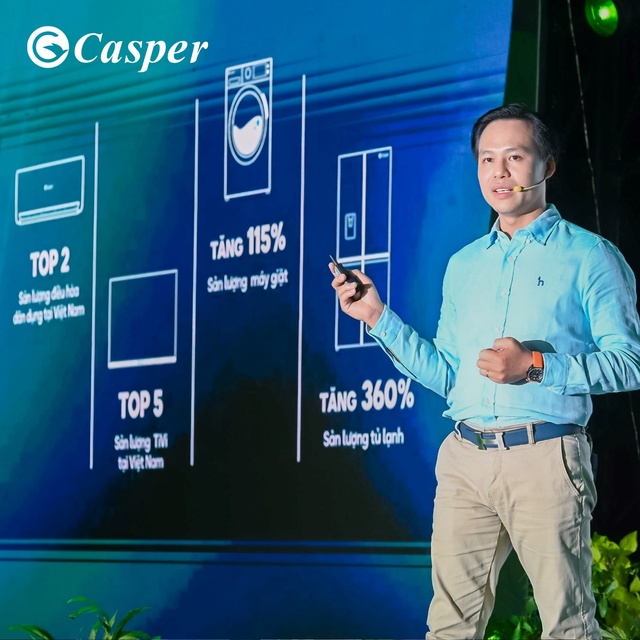
Nguyen Truong Thanh, Deputy General Director of Casper Vietnam, said that the company will shift 100% to Inverter air conditioners in Casper Vietnam’s long-term plans. Photo: Tuan Nguyen
“In the current trend of saving and efficiency, affordable Inverter air conditioners with highly practical functions are sure to be consumers’ top choice for this year’s hot season,” said Tien Minh, a long-time expert in the consumer electronics market in Vietnam.



